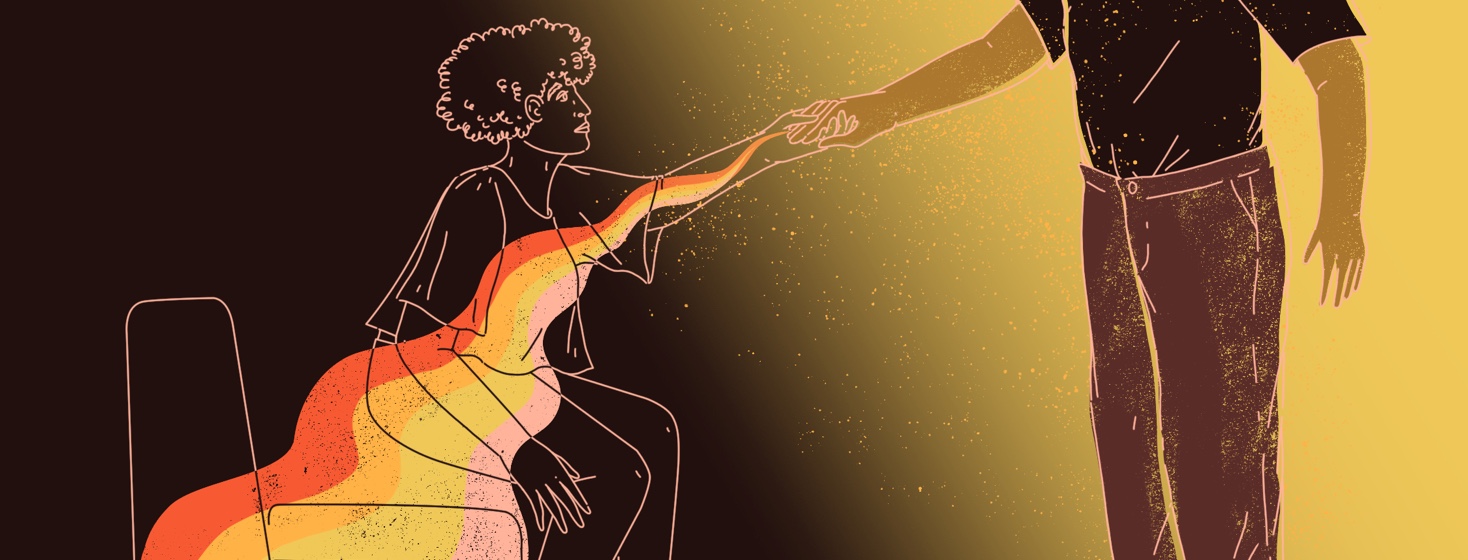If I Forgot to Say Thank You
Learning you have cancer and coping with the news can bring on many complicated responses. Most of us begin by trying to cope through denial. Self-talk may sound like, "We were expecting something worse," or "It simply can't be true."
Usually, given a bad reputation, denial is a bonafide coping mechanism that allows us time and space to reach acceptance.
Avoidance
Unfortunately, some of us shut down and avoid reality. Refusing to respond, we convince ourselves there is a lot ahead of us that we must deal with. Avoiders may say, "Being emotional just gets in the way." In contrast, some of us dissolve into tears either privately or publicly.
Ultimately, we are buying time and sometimes erring on inertia to get us through. Too often, the stories of women with advanced ovarian cancer present evidence of a delay in the proper treatment response. We then find ourselves in the late stages of the disease.
Being your own caregiver
Have you always had the unwavering task of being in a caregiver role? Now you may find this pattern reemerging. However, this time, it is all about you.
You, too, may even hold back the truth. Another effort at avoidance occurs when energy is placed on efforts to protect family and friends at all costs. Some of us may practice how to communicate bad news. The patient in this role tries their best to have answers to every question and assumes a position that all is under control.
The "do gooders"
We have all experienced people who insist they know what is best for us. Unfortunately, they may dictate how and when to let others know what we know. In their haste to "do good," people can easily misjudge your ability to take action in your own time and on your behalf. This process may delay carefully evaluating your needs and how you can meet those needs.
Unfortunately, this caregiver style may leave a person alone with one of the most difficult challenges they have ever faced. I firmly believe that having cancer is a crisis as it is an event for which we are typically unprepared.
Friends and family in full gear
When life becomes complex, and we realize that our experience with cancer is more than one person can manage, many of us reach out to others. Relying on other people is hardly a flaw in our personality, but instead allows others to enter our system to begin to bring aid. We enter into a relationship of trust to gain the support and encouragement we need.
Engaging in fact-gathering often removes a difficult task for the person still stunned by bad news. In addition, exploring options together opens a whole new world of hope. Similarly, validating the treatment location and physicians' experience with the type of cancer can bring an incredible sense of ease.
Building a relationship of trust
In my opinion, the most helpful caregiving style is the person who takes time to listen and recall what is important to me. I do not need to be flooded with advice about treatment options or ways to cure my cancer. However, I must trust my treatment team is on board to do just that.
As a professional and now a consumer of cancer care, I read articles about FDA approvals of drugs for ovarian cancer and look for data proving increases in survival rates in these studies. In addition, I review the side effects and toxic responses to new drugs, hoping one day, there will be more options to keep us alive.
Accepting help isn't always easy
Accepting help means letting go of something to get something. First of all, it requires a reciprocal relationship of trust. I need to practice being open and honest with at least a select few. I know I need to avoid being so proud that I interfere with noble efforts on the part of caregivers. My caregivers have been willing to put aside their pain of facing anticipatory loss and jump right in to help.
Sometimes, I need to be the teacher, the counselor, and the Paraclete to encourage my caregivers to stay close and learn what I truly need from them. I need to do this work so they can successfully bring meaning and purpose to my life and theirs. I need to be less stubborn or set in my ways to allow others to reflect on what they see in me.
I need to pray for and thank all the caregivers who stand by me daily, remembering they do what they perceive is the best they can offer.
If I forgot to say thank you
I ask you not to leave my side. I hope you will tolerate the days when I am low and not my usual cheerful self. I do not hold you responsible for my happiness, anger, or acceptance. Know that I love you and appreciate you for being here despite it all.
Editor’s Note: We are extremely saddened to say that on August 9, 2024, Ellen Reed passed away. Ellen’s advocacy efforts and writing continue to reach many. She will be deeply missed.

Join the conversation